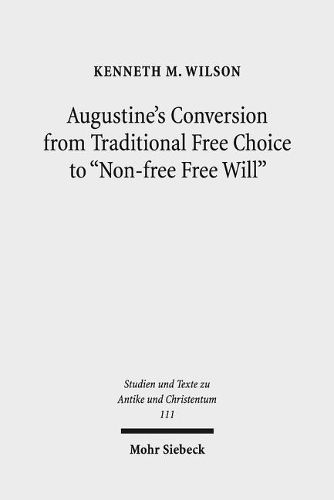Readings Newsletter
Become a Readings Member to make your shopping experience even easier.
Sign in or sign up for free!
You’re not far away from qualifying for FREE standard shipping within Australia
You’ve qualified for FREE standard shipping within Australia
The cart is loading…






The consensus view asserts Augustine developed his later doctrines ca. 396 CE while writing Ad Simplicianum as a result of studying scripture. His early De libero arbitrio argued for traditional free choice refuting Manichaean determinism, but his anti-Pelagian writings rejected any human ability to believe without God giving faith. Kenneth M. Wilson’s study is the first work applying the comprehensive methodology of reading systematically and chronologically through Augustine’s entire extant corpus (works, sermons, and letters 386-430 CE), and examining his doctrinal development. The author explores Augustine’s later theology within the prior philosophical-religious context of free choice versus deterministic arguments. This analysis demonstrates Augustine persisted in traditional views until 412 CE and his theological transition was primarily due to his prior Stoic, Neoplatonic, and Manichaean influences.
$9.00 standard shipping within Australia
FREE standard shipping within Australia for orders over $100.00
Express & International shipping calculated at checkout
The consensus view asserts Augustine developed his later doctrines ca. 396 CE while writing Ad Simplicianum as a result of studying scripture. His early De libero arbitrio argued for traditional free choice refuting Manichaean determinism, but his anti-Pelagian writings rejected any human ability to believe without God giving faith. Kenneth M. Wilson’s study is the first work applying the comprehensive methodology of reading systematically and chronologically through Augustine’s entire extant corpus (works, sermons, and letters 386-430 CE), and examining his doctrinal development. The author explores Augustine’s later theology within the prior philosophical-religious context of free choice versus deterministic arguments. This analysis demonstrates Augustine persisted in traditional views until 412 CE and his theological transition was primarily due to his prior Stoic, Neoplatonic, and Manichaean influences.